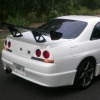Rb30 Patrol
Announcements
-
Similar Content
-
Latest Posts
-
The Neat gears use an alternative profile, no? Something different to what normal OEM stuff is. Is the noise at all traceable to that? Reason I ask is that my CW&P are effectively past their use by bate and Neat is the obvious option.
-
Just picked up my first skyline. R34 4 door with an rb25det and manual swap. I’m in the US. It has a bunch of issues but the problem I’m chasing now is the indicator, hazards, and horn do not work. I took out the indicator relay and fuses and tested separately and they seem to be working fine. When I activate the turn signal stalk or the hazard button nothing happens, no clicking, and no dash lights. Same with the horn. What should I test next? The headlights, taillights, and brake lights work fine so I think the stalk is good.
-
Sorry just googled Toyota WiLL Vi and wish that I didn't, day ruined, fark etc.
-
So mines not in yet ... which should tell you something ... I got a set of neat gears as well, took a year to get those. Then the setup was a real tricky one, with all the changes. It seems the shims for the front diffs are in short supply and had to wait two round of custom ones. This was all done by a professional diff builder , not me/diy. So here we are about to go into 2025 and I do finally have a built front sump / diff / gears. Just need the mojo to pull out the engine ... Oh as an aside on the neat gears, they have some whine, mostly on decel. Taken a bit of setup again to get that down to a street car level.
-








Recommended Posts
Create an account or sign in to comment
You need to be a member in order to leave a comment
Create an account
Sign up for a new account in our community. It's easy!
Register a new accountSign in
Already have an account? Sign in here.
Sign In Now